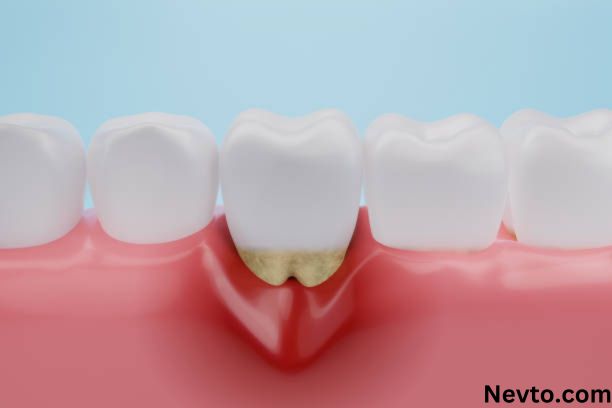Active Care Nutrition: The Secret to Achieving Optimal Health and Longevity
Active care nutrition refers to taking a proactive approach to meeting our nutritional needs through supplementation and lifestyle changes. The goal is to optimize health, prevent nutrient deficiencies, and support vitality as we age. This guide covers the key things to know about active care nutrition.
Eating well and maintaining a healthy diet is essential for overall wellbeing. However, even the most nutritious diets sometimes fall short in providing all the nutrients we need. This is where active care nutrition can make a big difference.
Table of Contents
What Exactly Is Active Care Nutrition?
Active care nutrition encompasses both diet and supplementation strategies to promote optimal health. Some key principles of active care nutrition include:
- Eating a balanced, nutrient-dense diet: Focusing on incorporating vegetables, fruits, whole grains, lean proteins, healthy fats and dairy into your meals and snacks.
- Addressing individual nutritional needs: We all have unique nutritional requirements based on age, gender, activity levels and health status. Active care nutrition involves assessing where your diet may fall short and addressing those gaps.
- Strategic supplementation: Adding in specialized supplements like multivitamins, omega-3s or probiotics where a nutrient shortfall has been identified. Supplementation works together with a healthy diet.
- Lifestyle factors: Getting enough physical activity, sleep and stress management are also key parts of the active care nutrition approach. All of these lifestyle factors intersect with our nutritional status.
The end goal is to meet 100% of nutrient needs through food whenever possible, while using supplements to fill any nutritional gaps that remain. This comprehensive approach is what sets active care nutrition apart.

Why is Active Care Nutrition Important for You?
There are many excellent reasons why active care nutrition should be a priority. Some of the key benefits you can expect to gain include:
Increased Energy Levels
Following active care nutrition guidelines that address your unique nutritional requirements can translate into feeling more energetic physically and mentally. Important nutrients like iron, magnesium and B vitamins support energy production and blood flow.
Disease Prevention
Active care nutrition provides optimal intakes of nutrients that play protective roles against disease. For example, calcium and vitamin D support bone health while antioxidant vitamins buffer against cell damage contributing to cancer and brain diseases.
Healthy Immune Function
Nutrients such as zinc, selenium, vitamin C and probiotics all help maintain a robust immune response. Active care nutrition ensures you meet intake levels to allow your immune defenses to operate at full capacity.
Healthy Aging
Optimizing nutrition intake can help minimize age-related declines in brain, eye, bone and muscle health. Active care nutrition meets the increased nutritional needs required to counteract these declines. Supplements also play an important role for older adults who absorb fewer nutrients from food.
The many benefits of active care nutrition make it a smart preventative health measure at any age. But it becomes particularly key as we get older and our risk for many diseases increases.
Active Care Nutrition for Digestive Health
Digestive issues are very common today due to poor diets, high stress levels and overuse of medications. Symptoms like gas, bloating, constipation and heartburn can greatly impact quality of life when they become chronic issues.
The good news is active care nutrition can be very helpful for improving digestive health. Let’s look at some of the top ways it supports the GI system:
Increasing Fiber Intake
Fiber normalizes bowel movements, reduces constipation, and feeds healthy gut bacteria. Active care nutrition involves consuming fiber-rich whole grains, fruits, vegetables and legumes. Fiber supplements like psyllium or wheat bran may also help.
Staying Hydrated
Drinking adequate fluids is crucial for digestive health. Water and herbal teas support regularity and help prevent painful problems like diverticulitis. Aim for at least sixty four ounces per day as part of an active care nutrition plan.
Taking Probiotics
These healthy bacteria support overall GI function and immunity. Probiotic supplements can improve digestion and normalize stool if gut flora get disrupted. Active care nutrition ensures you meet the high demands for probiotics required for optimal digestive health.
Limiting Processed Foods
Refined carbs, sugar, alcohol and fried foods commonly trigger GI issues. An active care nutrition diet focused on whole, nutritious foods is much easier on the digestive system. This takes strain off the GI tract and supports better functioning long-term.
Prioritizing digestive health is a key piece of active care nutrition for quality of life as we age. Simple diet and supplementation strategies make a big difference.

Active Care Nutrition Supplements
While whole foods should make up the foundation of an active care nutrition plan, supplements can be a convenient way to fill specific nutritional gaps.
There is an enormous range of supplements available, but a basic active care nutrition supplement protocol may include:
High-Quality Multivitamin
Even healthy eaters often come up short on things like calcium, magnesium, zinc and vitamin D which are so important as we age. A daily multi helps cover any nutritional shortfalls that remain.
Omega-3 Fish Oils
Most people do not get adequate anti-inflammatory omega-3s from their diet. Fish oil supplements help reach the high intakes required to protect the heart, brain, eyes and joints.
Probiotics
These “good bacteria” supplements promote healthy digestion, immunity and nutrient absorption. Older adults produce fewer probiotics naturally, so supplements are key.
Antioxidants
Vitamins A, C and E plus plant compounds like resveratrol combat age-accelerating free radical damage. Antioxidant supplements provide extra protection against disease.
Bone Health Supplements
Bone loss accelerates as estrogen levels decline for women and testosterone drops in older men. Calcium, vitamins D and K work together to support bone renewal and density.
These are just a few of the many supplements to consider making part of an integrated active care nutrition protocol. Always consult your physician before starting a new supplement, especially if you take prescription medications.

Pros and Cons of Active Care Nutrition
Adopting an active care approach to your nutritional health has many benefits but there are a few potential downsides to consider as well.
Pros
- Optimizes intakes of protective nutrients
- Helps ward against illnesses like diabetes and osteoporosis
- Boosts energy, brain health and vitality
- Cost-effective preventative health strategy
- Convenient to follow with supplements
Cons
- Requires learning new nutrition strategies
- Can involve minor diet changes
- Necessitates taking daily supplements
- Supplements add to monthly expenses
- Requires tracking intake of some nutrients
For most people, the multitude of health perks active care nutrition provides by far outweighs these minor inconveniences. Investing in your nutritional health is one of the wisest health decisions you can make, especially as you get older.
Conclusion
Active care nutrition focuses on optimizing our intake of protective nutrients through strategic supplementation and dietary improvements. This comprehensive approach provides the strong nutritional foundation needed to promote wellness as we age.
By addressing nutritional gaps, enhancing energy levels, and supporting healthy digestion and immunity, active care nutrition allows us to target the key areas that decline with aging. Committing to this type of nutritional plan empowers us to take a proactive approach against disease and dysfunction. It also helps ensure we can actively enjoy the later years of life feeling energetic, mentally sharp and healthy.
Read: How To Cure Gum Disease Without a Dentist?

FAQs
What are some easy diet changes to make as part of an active care approach?
Some simple steps include eating an extra serving of vegetables each day, having nuts or seeds daily for vitamin E and magnesium, choosing whole grains instead of refined carbs, and drinking more water or herbal tea for hydration.
How can I determine which vitamins I ought to take?
Start with a high-quality multivitamin/mineral made for your age group and gender. An omega-3 fish oil for heart and brain health is also advisable. Consider adding a probiotic, vitamin D and calcium too. Check with your doctor before starting to rule out interactions.
Do I still need supplements if I eat very healthy?
Even healthy diets usually fall short on key nutrients we need more of as we age – things like vitamin D, calcium, magnesium and potassium. Well-chosen supplements help fill nutritional gaps without having to overhaul your diet or meals.
Can supplements really make that big a difference?
Research shows that strategic supplementation tailored to your needs provides major protective benefits, including reduced risk for heart disease, diabetes, cancer and osteoporosis. Investing in supplements is investing in your future health.



